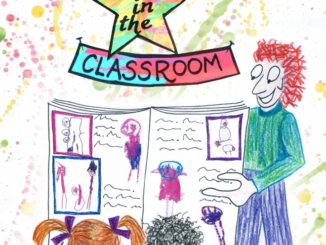Preface
As its title indicates, this is a concise guide aimed at helping you to understand and change your behavior. In contrast to many publications, what follows is based on a scientific approach – one called Perceptual Control Theory.
As you will see, the quotes provided are from the book Your Behavior: Understanding and Changing the Things You Do (St. Paul, MN: Paragon House, 2017). That book and the present booklet are a reaction to the overall scattered and speculative state of psychology at the present time. They aim to synthesize work and thinking from psychology, sociology, anthropology, biology, cybernetics, and other areas into a coherent explanation of why you and other people do the things you do, in a way that can be understood by an average educated person as well as by professionals in the fields mentioned (Pfau, Your Behavior, 2017, p. xxi).
In short, what is presented are basic facts that can help you to understand and control your life better. Consider them carefully.
Contents
Preface
Chapter 1. You Are a Survivor!
A. Survival – A Key Idea
B. Autopoiesis – Another Key Idea
Chapter 2. You Are Organized to Survive
A. You Cope with Your External Environment
B. Perception and What You Do
Chapter 3. What Affects What You Do – A Focus on Your Body
A. Your Nervous System and Perceptions
B. Perceptual Control Theory – An Explanation of What You Do
C. More About Your Body – Feelings, Hormones, and Genes
D. Consciousness
Chapter 4. How You Became the Way You Are
A. Your Genetic Heritage
B. Learning
C. Socialization and “Social Control”
D. Examples of Physical Environmental Effects on People’s Bodies
Chapter 5. How Regular and Routine is Your Behavior?
A. The Big Picture
B. When Is Your Behavior More Unique?
Chapter 6. You and Your Immediate Environment
A. Environmental Effects on Behavior
B. Other Interactions with Your Environment
C. Environmental Choices and Shaping
Chapter 7. Perception of Your Environment
A. People’s Perceptions Differ
B. Your Brain Constructs Reality
C. Framing and Spin Techniques
D. More Important Thoughts
Chapter 8. Your Broader Environment and Its Influence
A. Introduction
B. Economic Conditions
C. Organizations
D. The System
E. News Agencies and the Mass Media
F. The Medical System
Chapter 9. Theories and Models of Human Behavior
A. Some Important Ideas
B. Perceptual Control Theory – A Major Paradigm Shift
C. PCT: A Metatheory
Chapter 10. How to Analyze Your Behavior
A. An Expanded PCT Model
B. Understanding and Analyzing Behavior
Chapter 11. Lessons Learned: How to Change Your Behavior
A. A General Approach for Changing Your Behavior
B. Additional Resources Available to Help You Change
C. How Others Try to Influence What You Do
D. To Conclude
Bibliography
Index



